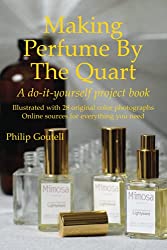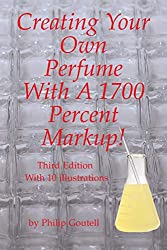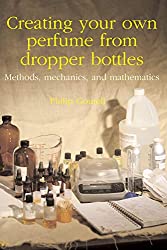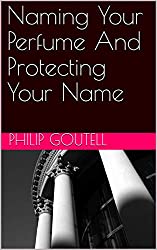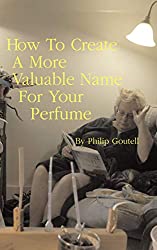Acquiring inventory for your perfume store
Last week I wrote the first in a series of articles about opening your own perfume store. I promised to write about acquiring inventory this week. One way to do it is to create your own fragrance products – perfumes, colognes, soaps, candles, incense, etc. – I've written about creating your own perfume here and here and about developing a wholesale fragrance business here. But suppose you just want to sell fragranced products in your store. How do you go about finding products for your store? You need to find products people will buy and you have to obtain them at the "right" price. If your store is small and your business is new it can surprise you to discover that established brands won't sell to you, nor will they allow their distributors sell to you. What do you do now?
Obtaining inventory for a small perfume store is an art.
While you may not be able to obtain the famous stuff, you should note that your competitors can't get it either, yet they are obtaining inventory and making sales. Before we look at what your competitors are doing, a word of warning.
When you are setting up your new store (or folding table) and are in need of inventory, there are easily found sources that are happy to sell you all the off-brand perfume you want at their non-negotiable "list" prices. They will encourage you by telling you how to set your retail price and, from that price, show you what a great markup you will have, a "standard" markup they may call it, but beware. In the first place, their perfume might not sell in your store at the retail price they suggest to you. Then, if you are a novice, you might not realize the markup they promise is really inadequate. And, when you find you can't sell their fragrances for the retail prices they suggest, when you have to slash your prices to make sales, you are also cutting your markups. Now what you get from a sale will be far less that what you anticipated. This issue is discussed in depth in my book, Creating Your Own Perfume With A 1700 Percent Markup! Now it's time to look at your successful competitors and study what they are doing.
You can learn a lot about what your customers will like and buy by studying your competitors. Whether your competitors are online or in local shops, see what they are offering and promoting with advertising or social media week after week. These will be the items that are selling and these will be the items you will want to acquire for your store. If it sells for them, it will sell for you. The question now is how to obtain the items your competitors are selling successfully and how to get those items at the same or a similar price.
In most cases the same wholesalers and distributors who are selling to your competitors will also sell to you. In most cases it is unlikely your competitors are buying enough of any one item to get an exclusive on it. So your first step is to track down the vendors that are selling to your competitors.
How do you track down these vendors? Sometimes it is as simple as asking a competitor where they get their merchandise. It may sound unlikely but it happens more often than you might imagine, particularly when there is a major source that "everybody" (but you!) knows about and they are confident that, if they don't share the information with you, you will soon enough discover it on your own.
If this strategy fails, a standard strategy is to buy a popular item from a competitor – provided it is packaged and labeled – and then look to the packaging for clues as to its source and the source's address. Even a few initials on a box or bottle combined with a Google search can often turn up the original source. A wily competitor will obscure this information on the items they sell but most of your competitors will be too lazy or too unaware to do this.
The issue now will be price. You want to be sure the vendor is giving you the same price your competitors are getting. Here you may have to do some negotiating, to convince the vendor that in time you are likely to become a very good customer, so the vendor should treat you well now. And it doesn't hurt to ask what you would have to do to get lower prices.
Aside from supplying your current needs, vendors can be useful because they are aware of trends and what might become a hot item tomorrow. It helps to cultivate a good relationship with vendors. Pay what you agreed to pay and pay on time. Don't try to get tricky with payments to save a few dollars now. This could cost you some needed good will later.
A starting point for stocking your store is to offer the same or similar merchandise as your competitors are selling. This won't make you rich but it will help you start to generate a cash flow.
Go for variety
As you don't yet know what your customers want (since you haven't yet opened your store!) get some variety in your offerings -- don't have it all the same. Why? Because by having a variety of scented products, for example, you will get a sense of what will sell profitably and what won't sell. In going for variety keep your ordering for each item minimal. If it sells profitably, you can get more . If it doesn't sell, you haven't lost much. Information is your best friend and, by being able to see what people select out of a range of products – especially a variety of perfumes and scented products – you'll become a more effective buyer going forward.
Copying your competitors is a starting point. Do it carefully and thoughtfully and you should be able to get your business started. Hard work will keep your shop going but, if you want to make more than just a living, you should look into some "advanced" merchandise acquisition strategies. I'll write about them next week.
Also available in a soft cover edition from Amazon. — or read more about this book.
Homemade perfumes generally lack commercial value, regardless of how wonderful they may be, because their creators fail to record how their perfumes were made. To profit from a perfume, to sell it, to sell the rights to it, or have somebody sell it for you, you must be able to make more of it. To make more you need the formula, the record of how the perfume was made: what materials were used and how much of each material was used. While the formula is nothing more than a recipe, a simple piece of paper, it is the key to unlocking your perfume's commercial potential. With the formula in your hand you have the ability to make a few dozen bottles more or, like the celebrities, tens of thousands of bottles. How to create an international production formula for your homemade perfume is a guide to getting you started on the right foot, correctly documenting everything you do as you are doing it, and then using these notes with some basic mathematics to write a simple, accurate, universal formula for your perfume. Writing formulas for your perfumes can change the way you think about them. With your formulas in hand your creations are no longer "here today, gone tomorrow." Now, thanks to your library of formulas, your perfumes become immortal!
While much is written about perfume – the beautiful fragrances... the beautiful bottles – little is available on the "mechanics" of perfume production – the steps that take place on the "factory floor" where a beautiful vision is turned into a finished product, a "ready to sell" perfume. Now you can experience all of these steps, hands on, by making just one quart of your own perfume. If you follow each chapter and do what you are instructed to do, you will end up with from 8 to 64 bottles of your own perfume, depending on the capacity of the bottles you select. Along this "insiders journey," each step is profusely illustrated with professional color photographs and you'll learn — • Exactly what alcohol you'll need and where to get it • Why you'll want (just a little!) water in your perfume • What type bottles you'll need and why you cannot use others • Why you will use a spray and not a cap • How to fill and seal your bottles • How to label your bottles with the correct information so they will be legal for sale • How to select a name for your perfume that will allow you to acquire powerful trademark rights free. If you are a developer of scents you are encouraged to use one of your own for this project. If you are not a scent creator yourself you'll learn how to get a fragrance oil that is exactly right for this project. Online sources are given for all required supplies and materials. Nothing can hold you back from starting your project immediately!
Perfume is famous for the markup it can achieve, even for a middle market fragrance. While "everybody knows" that perfume costs next to nothing to make (not completely true) the making of it is often considered an esoteric secret. "Creating Your Own Perfume With A 1700 Percent Markup!" details how a 3-person company with no experience created their own fragrance in response to a marketing opportunity that was too good to pass up. The book explains exactly what was done to create a fragrance for that opportunity but it is far more than a history of the author's project. "Creating Your Own Perfume With A 1700 Percent Markup!" lays out every step in the process of creating your own perfume, either as a do-it-yourself project – and without the benefit of automated equipment some compromises and workarounds are required – or full bore professional production under your supervision. Either way you will be producing a quality fragrance at a remarkably low cost. Do you have a marketing opportunity that would be wildly profitable if only you could obtain your fragrance at a ridiculously low cost? "Creating Your Own Perfume With A 1700 Percent Markup!" is the guide you need to do it.
Now when you make your own perfume you can make it fully "commercial" meaning you will be creating a product ready for regular, continuous sales to friends, relatives, and the public! If the fragrance you've made has already won praise, why not share it with others? Some might pay you for it and want it for their web stores or retail boutiques! Creating your own perfume from dropper bottles: Methods, mechanics, and mathematics guides you through steps that can turn your hobby project into a perfume business. Discover how close you are now and how little more you must do to take what you made with essential oils and dropper bottles into a business of your own! For an introduction to this book, watch this video.
You can build a perfume business of your own using this business plan as a guide. By following its detailed strategy you learn to identify motivated groups of potential perfume buyers. Members of these groups are near the tipping point of desire for a new perfume. You don't know these people and they don't know you but you know a marketer they trust, one who does not currently sell perfume and might never think of selling perfume were it not for your approach. Here is where you step in with a professional plan, promotion, and perfume to take advantage of this ripe opportunity for mutual profit. Before your first promotion has peaked, you will already be developing a relationship with your next marketing partner. Following this plan, you will gain more and more profit with each new marketing partnership.
A really great name, a special name that is just right for a particular perfume or perfume marketer (or entrepreneur with money to invest!) can be worth a ton of money. But few individuals with great ideas ever manage to cash in on those brilliant ideas. Instead they wait while others "discover" their idea, acquire legal rights to it and make all the money while they are left out in the cold without a penny having been earned for what was once THEIR idea.
If you are struggling to name your perfume and are looking for a name that will have real value, "Naming Your Perfume And Protecting Your Name" will help you weed out low value names and point you to names that have better marketing value plus the potential to become valuable assets in themselves.
If you have a great name you want to protect but no fragrance, "Naming Your Perfume And Protecting Your Name" will guide you through the simple steps you must take to acquire a legal right to that name before someone else grabs it! Best of all, "Naming Your Perfume And Protecting Your Name" shows you how to gain strong legal protection for your name without a lawyer and without spending more than pocket change.
Never had an idea for a product name? Never thought much about perfume? "Naming Your Perfume And Protecting Your Name" may stimulate your interest in a whole new game that, when played well, can make you lots of money without your having to leave the comfort of your home office.
When you name a perfume you create a valuable asset – the name itself. To sell your perfume you want the most effective name possible. But a good name can have value beyond the edge it gives your sales. In naming your fragrance you are creating a trademark and a trademark can have value independent of the product. The value of that trademark can vary. Much depends on how well, in naming your perfume, you follow the trademark "rules." How To Create A More Valuable Name For Your Perfume first helps you develop a name that will be effective in selling your perfume. It then prods you to make use of certain techniques that can turn a good name into a great trademark, strong and valuable. If you have questions about how to protect a name, How To Create A More Valuable Name For Your Perfume will answer many such as:
- Can you protect your name yourself or do you need a lawyer?
- Can you register a trademark without a lawyer?
- What does it cost to register a trademark?
- How do I enforce the rights I have established?
How To Create A More Valuable Name For Your Perfume covers both state, federal, and international protection.
For article updates, etc., add your name to Phil's mailing list.


Philip Goutell
Lightyears, Inc.


